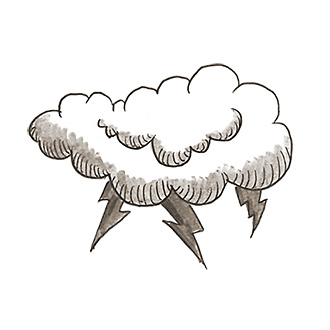
Related Questions
- What are the basic forces behind tape and glue?
- How does a match burn in a spacecraft?
- How can a snail crawl upside-down on the underside of the surface of a pond?
- Does a golf ball really change its shape when struck by the club?
- What’s the difference between premium-grade and regular gasoline?
- Is fire a solid, a liquid, or a gas?
- Why is mercury liquid at room temperature?
- Why do plastics get brittle when they get cold?
- Are there materials that can absorb heat without becoming hot?
- Why doesn’t a plain, white piece of paper reflect light, but a mirror does?
Does hot water freeze faster than cold water?
It’s an age-old question with a simple answer: no.
By Sarah JensenSince the time of Aristotle, researchers and amateur scientists alike have batted about the counterintuitive theory that hot water freezes faster than cold. The notion even has a name: the Mpemba effect, named for a Tanzanian schoolboy who in 1963 noticed that the ice cream he and his classmates made from warm milk froze quicker than that made from cool milk.
“No matter what the initial temperature of water is, it must be brought to the freezing point before it will change state and become ice,” says Prakash Govindan, a postdoctoral associate in MIT’s mechanical engineering department. It will actually take more time and/or energy to freeze hot water because it must be brought down further in temperature until it reaches the freezing point, about 0°C.
Govindan suggests conducting a simple experiment to demonstrate that hot and cold water will behave as logic predicts. “Fill two identical containers with hot and cold tap water from the kitchen sink and see which freezes first,” he says. Interestingly, he points out, the rates of change in this experiment will not be the same. “When you set them in the freezer, the freezer will work harder to bring the temperature of the hot water down, so initially the rate of heat transfer will be faster in the hot water.” However, the other container will be cooling at the same time (if not at quite the same rate).
When the temperature of the water in each container reaches just about 0°C it will undergo the same changes as it moves from a liquid to a solid, and it will take the same amount of time to begin forming tiny ice crystals. At that point, each mixture of liquid and ice will be at a uniform temperature, and as more heat is taken from the mixtures, the thermodynamic principle of latent heat kicks in: The water continues to convert to a solid state, but no longer changes in temperature. “As long as you have a mixture of liquid water and solid ice, the temperature will remain at 0 until all the water is frozen,” says Govindan.
It’s never been convincingly proven than hot water and cold water behave differently from each other at any step of the freezing process, despite the ongoing fascination with the Mpemba effect. In early 2013, Europe’s Royal Society of Chemistry even held a competition for the best explanation of the theory. The winner speculated that hot water indeed freezes more quickly if the cold water is first supercooled. But logic triumphs when it comes the plain ordinary water that comes from the household faucet. Most likely to impact the freezing point of water is the presence of impurities such as salt, dissolved solids and gases — and the ingredients of homemade ice cream.
Thanks to Khubaib Mukhtar of Pakistan for this question.
April 30, 2013